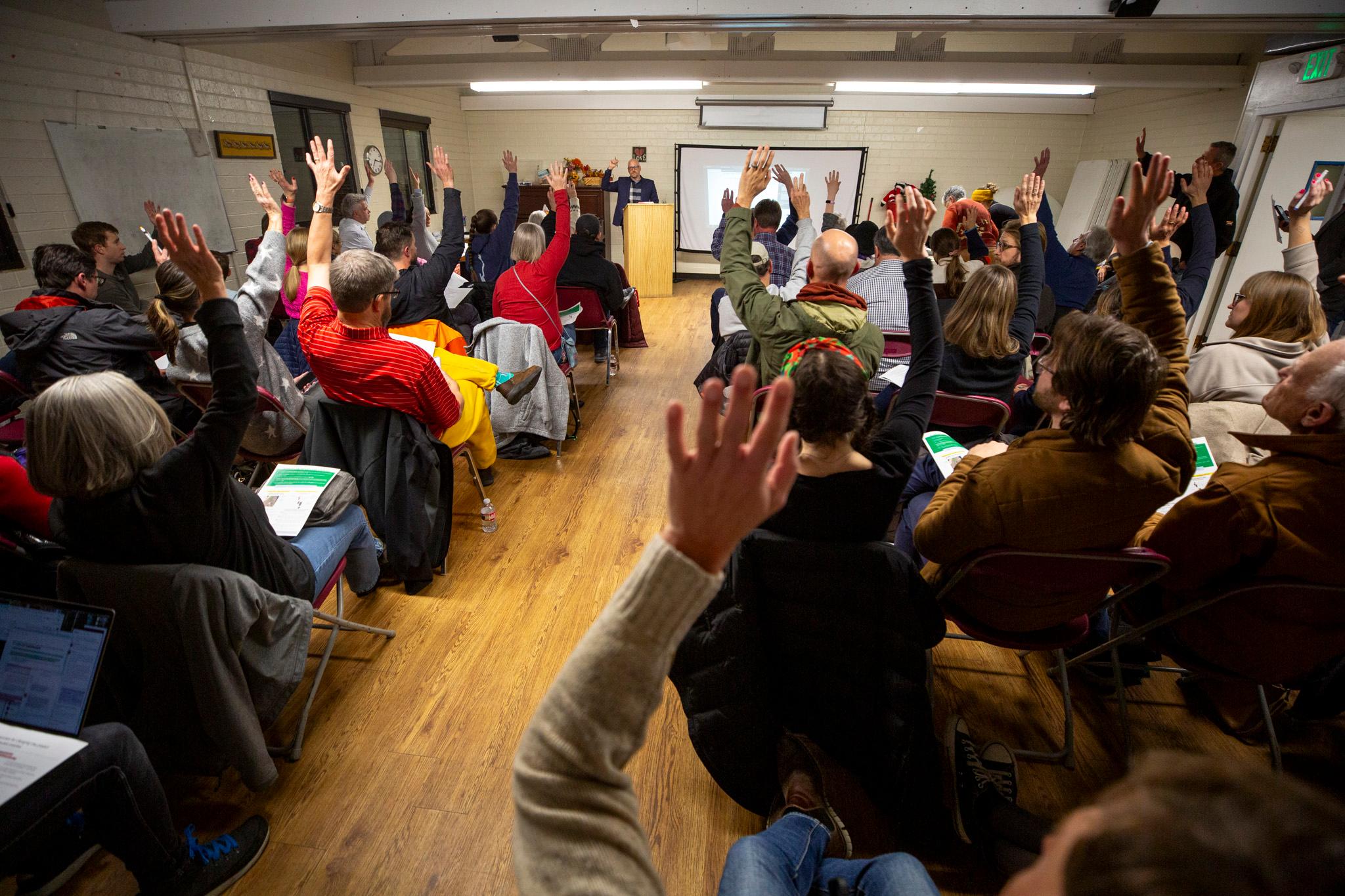The Denver school board agreed Monday on a tight timeline for finding a new superintendent, leaving some parents, students, and advocates to wonder whether there will be enough time to do the deep community engagement the board has promised.
“They’re saying a lot about being transparent, and they’re making it sound like a group decision, so I want to see where we come into the process,” said student Maya Contreras, a rising junior at Denver’s South High School.
The ultimate decision lies with the seven-member Denver school board, and Contreras was in the audience Monday when the board passed a resolution laying out the timeline. It says the deadline for superintendent candidates to submit an application will be Sept. 14, and the board will name the finalist or finalists by Oct. 15, less than three months from now.
Outgoing Superintendent Tom Boasberg announced this month that he’s stepping down after nearly 10 years leading the district.
Board member Happy Haynes said the timeline is meant to maintain stability in a district that has “got a lot of good things happening” and attract top candidates who may not stay interested in the job if the search drags on for many months.
“The longer you have uncertainty about the leadership, it creates anxiety,” Haynes said.
But parent Brandon Pryor said the short time window makes it appear that board members “already have their minds made up,” and the search process is just for show.
The resolution says the board will conduct a nationwide search with the help of a third-party consultant who has yet to be hired. The search will be open to both internal and external candidates, it says. Board member Lisa Flores said it’s likely the best candidates already have jobs elsewhere, “and we might be in a position of stealing someone away.”
Most importantly to many of the parents and students who came to watch the board meeting, the resolution says the board “will seek out community input on the experiences, qualities, and qualifications that the next superintendent should have.”
Before the meeting, a group of community members dissatisfied with the district, who believe its policies are poorly serving students of color and those from low-income families, gathered across the street from Denver Public Schools’ downtown headquarters to offer such advice.
They want the next superintendent to be an educator who lives in the city – and if he or she has children, to send those children to Denver’s public schools.
Boasberg was once a public school teacher in Hong Kong, but he came to the district in 2007 from a job as a senior executive at a telecommunications company. He lives with his wife and three children in Boulder.
The group, called Our Voice, Our Schools, said the next superintendent should remove police officers from schools and put a licensed teacher in every classroom, a dig at programs like Teach for America that recruit college graduates to teach full-time while earning a license.
The next leader should be “a transformer, not a reformer,” group members said, referring to school improvement strategies deployed during Boasberg’s tenure, including closing or replacing struggling schools.
Deputy Superintendent Susana Cordova, a Denver Public Schools graduate and former teacher who is widely seen as a leading contender for the job, would not be an acceptable choice because of her support for such strategies, they said.
Another community group, called Our Denver, Our Schools, released a similar list last week. It included that the next superintendent should speak Spanish, the most common language other than English spoken by the families of Denver students, 55 percent of whom are Latino.
It also said the superintendent should want to “phase out choice by assuring every neighborhood school is an excellent one.” Denver’s nationally recognized school choice system allows families to use a single form to request to attend any school in the city. State law requires districts to offer school choice, and Denver’s process makes it significantly easier for families to participate. But critics see it as fueling the growth of independent charter schools, among other things.
Even groups less hostile toward the district have called for the superintendent search process to include robust opportunities for the public to weigh in. Board members on Monday articulated a high-level plan for doing so that does not yet include details or meeting dates. They said their aim is to balance a desire to hear from as many community groups as possible with the fact that it is ultimately the board’s responsibility to hire the superintendent.
“It’s our duty to listen to you,” said board member Carrie Olson, a former teacher who was elected last year on a platform that included improving how the district engages with the community. “Not listen to you in a superficial way, but in a deep way.”
Student Jhoni Palmer was also in the audience Monday. A rising junior at East High School, she serves with Contreras on the district’s student board of education, an advocacy and leadership group. Palmer said she’d like the next superintendent to be a woman of color because the district has long been run by men and because the new leader should reflect the students, most of whom are students of color.
Contreras added that the superintendent should have attended public school themselves, and Palmer said that she’d like a local candidate “who knows how DPS runs.”
Most of all, the teenagers said students should be involved and consulted every step of the way. The adults may be in charge, Contreras said, but “they’re not the people in school.”
“We catch the repercussions of their actions,” Palmer said.
Chalkbeat is a nonprofit news site covering educational change in public schools.













